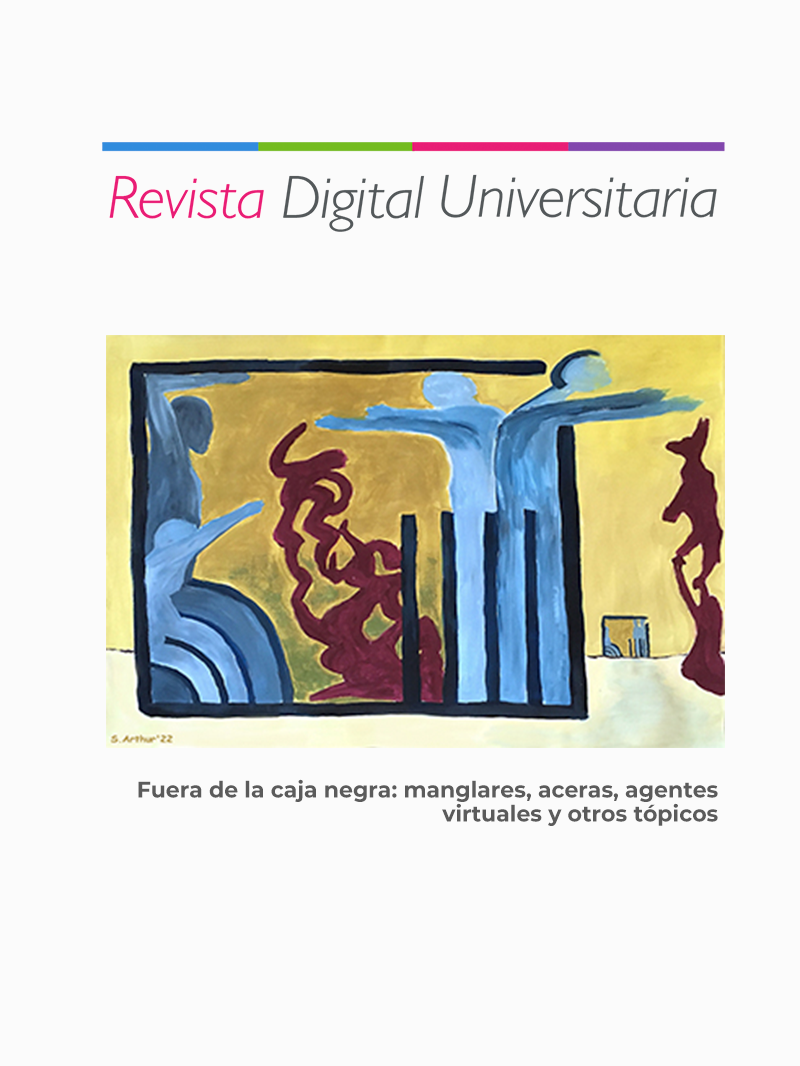Emotional intelligence: a route to gender equality
DOI:
https://doi.org/10.22201/ceide.16076079e.2024.25.5.2Keywords:
Emotional intelligence, Emotional capacities, Gender inequalityAbstract
Emotional intelligence is the set of social and emotional capacities that allow us to face life successfully. However, for many years society has fostered these capabilities dissimilarly in women and men, contributing to inequality of opportunities in different areas. In times of struggle for fair rights, it is necessary to create conditions to have access to the same opportunities. For this reason, the objective of this article is to clarify the concept of emotional intelligence to understand its importance, reflect on the differences between women and men, and, finally, seek to change ideas, speech or actions, which will allow a social transformation aimed at reducing gender inequality.
References
Arteche, A., Chamorro-Premuzic, T., Furnham, A., y Crump, J. (2008). The relationship of trait EI with personality, IQ and sex in a UK sample of employees. International Journal of Selection and Assessment, 16(4), 421-426. https://doi.org/10.1111/j.1468-2389.2008.00446.x
Cabello, R., Sorrel, M. A., Fernández-Pinto, I., Extremera, N., y Fernández-Berrocal, P. (2016). Age and gender differences in ability emotional intelligence in adults: A cross-sectional study. Developmental Psychology, 52(9), 1486-1492. https://doi.org/10.1037/dev0000191
Cobreros, L., Galindo, J., Raigada, T., e Isla, Carlos (2024, marzo). Mujeres en stem. Desde la educación básica hasta la carrera laboral. EsadeEcPol – Center for Economic Policy. https://tinyurl.com/4tmh973z
Craig, A., Tran, Y., Hermens, G., Williams, L. M., Kemp, A., Morris, C., y Gordon, E. (2009). Psychological and neural correlates of emotional intelligence in a large sample of adult males and females. Personality and Individual Differences, 46(2), 111-115. https://doi.org/10.1016/j.paid.2008.09.011
Garcia, F., Serra, E., Garcia, O. F., Martinez, I., y Cruise, E. (2019). A third emerging stage for the current digital society? Optimal parenting styles in Spain, the United States, Germany, and Brazil. International Journal of Environmental Research and Public Health, 16(13). https://doi.org/10.3390/ijerph16132333
Gardner, H. (2016). Estructuras de la mente: la teoría de las inteligencias múltiples (2.a ed.). Fondo de la Cultura Económica.
Goleman, D. (2015). Emotional Intelligence: Why it can matter more than iq (10.a ed.). Random House Publishing Group.
Harrod, N. R., y Scheer, S. D. (2005). An exploration of adolescent emotional intelligence in relation to demographic characteristics. Adolescence, 40(159), 503-512. https://tinyurl.com/494bdn8j
Jorge, E., y González, M. C. (2017). Estilos de crianza parental: una revisión teórica. Informes Psicológicos, 17(2), 39-66. https://doi.org/10.18566/infpsic.v17n2a02
Joshi, D., y Dutta, I. (2021). Emotional intelligence among secondary students: Role of gender and type of school. mier Journal of Educational Studies, Trends & Practices, 4(2), 167-182. https://tinyurl.com/k7rw25eb
Liem, J. H., Cavell, E. C., y Lustig, K. (2010). The Influence of Authoritative Parenting During Adolescence on Depressive Symptoms in Young Adulthood: Examining the Mediating Roles of Self-Development and Peer Support. The Journal of Genetic Psychology, 171(1), 73-92. https://doi.org/10.1080/00221320903300379
Meshkat, M., y Nejati, R. (2017). Does Emotional Intelligence Depend on Gender? A Study on Undergraduate English Majors of Three Iranian Universities. Sage Open, 7(3). https://doi.org/10.1177/2158244017725796
Pinta, S., Pozo, M., Yépez, E., Cabascango, K., y Pillajo, A. (2019). Primera infancia: estudio relacional de estilos de crianza y desarrollo de competencias emocionales. CienciAmérica, 8(2), 171. https://doi.org/10.33210/ca.v8i2.232
Ramirez-Lucas, A., Ferrando, M., y Sáinz Gómez, M. (2015). ¿Influyen los Estilos Parentales y la Inteligencia Emocional de los Padres en el Desarrollo Emocional de sus Hijos Escolarizados en 2o Ciclo de Educación Infantil? Acción Psicológica, 12(1), 65-78. https://tinyurl.com/38rc2kux
Rippon, G. (2020). El género y nuestros cerebros. Galaxia Gutenberg.
Vázquez-Valencia, C. Y., Herrera-Meza, S., Cibrián-Llanderal, T., y Campos-Uscanga, Y. (2022). Porcentaje de grasa corporal, inteligencia emocional y rasgos de personalidad en hombres y mujeres trabajadores. Medicina y Seguridad Del Trabajo, 68(269), 198-208. https://doi.org/10.4321/s0465-546x2022000400002
Villamizar, G., y Donoso, R. (2013). Definiciones y teorías sobre inteligencia. Revisión histórica. Psicogente, 16(30), 407-423. https://www.redalyc.org/articulo.oa?id=497552364013
Zukauskiené, R. Malinauskiené, O., y Erentaité, R. (2011). Effects of parenting styles and emotional intelligence on self-efficacy and self-esteem in late adolescence: gender differences. Psichologija, 44, 22-41. https://doi.org/https://doi.org/10.15388/Psichol.2011.44.2550
Published
Issue
Section
License
Copyright (c) 2024 Revista Digital Universitaria

This work is licensed under a Creative Commons Attribution-NonCommercial-ShareAlike 4.0 International License.

Revista Digital Universitaria es editada por la Universidad Nacional Autónoma de México se distribuye bajo una Licencia Creative Commons Atribución-NoComercial 4.0 Internacional. Basada en una obra en http://revista.unam.mx/.










